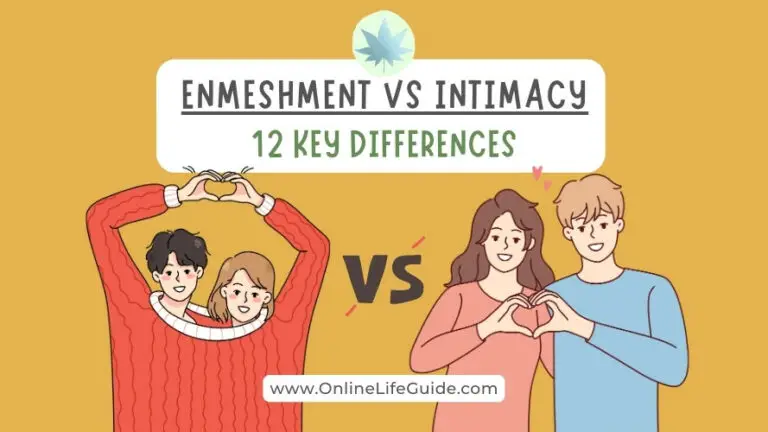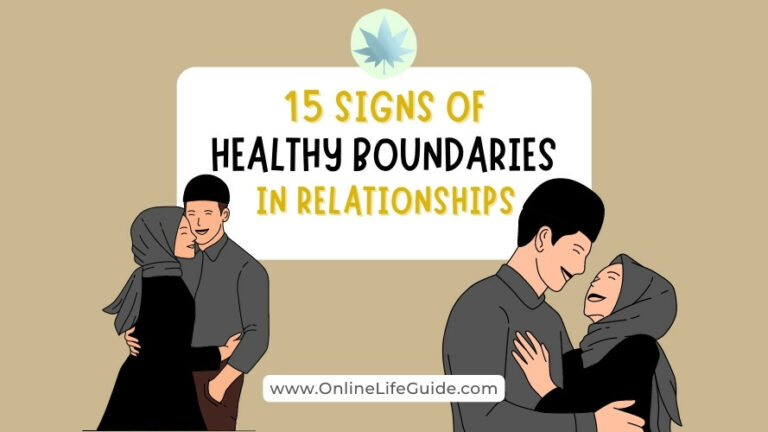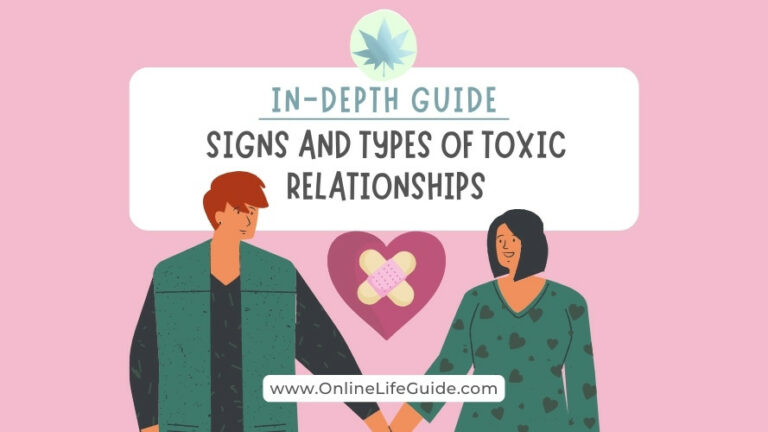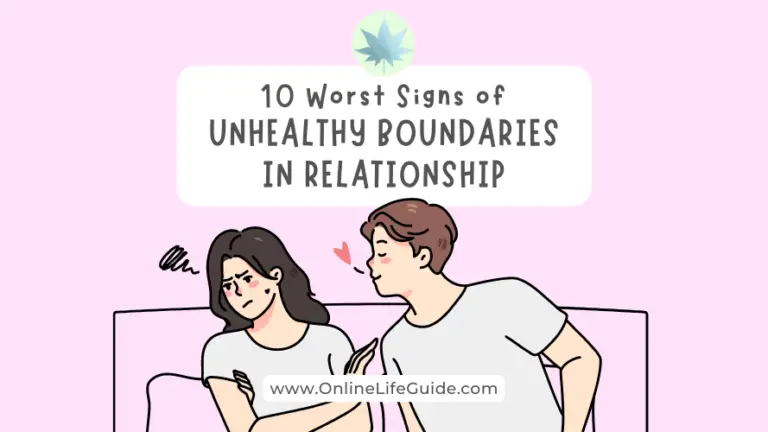12 Traits of a Toxic Partner – Signs of Toxic Husband/Wife

In an ideal world, we all want a perfect partner and perfect love in our lives, but sometimes reality turns out to be a bit different than what we imagined. Some people are just difficult to be in a relationship with because of their toxic nature.
People with toxic tendencies can be controlling, manipulative, and even abusive. They might use intimidation and gaslighting to have more control in the relationship.
If you feel like you’re in a relationship with a toxic individual, it becomes important for you to recognize the signs of a toxic partner and identify if your husband or wife has those toxic traits so you can take measures to deal with them effectively.
The toxic behaviors we’re about to discuss in this short guide are often a permanent part of someone’s personality.
These behaviors are not temporary phases that occur because the person is going through a rough patch. They are persistent patterns in their personality that keep repeating over time.
It’s natural for a normal, mentally balanced person to fall into some of these behaviors at times because of something they might be going through.
What makes a person toxic is when several of these traits persist in their personality over long periods of time (many months and years) regardless of their external circumstances.
No matter what their partner does to make things better, they’ll keep repeating these behaviors over and over, which eventually leads to psychological distress and exhaustion for the person dealing with them.
1. Volatile Personality
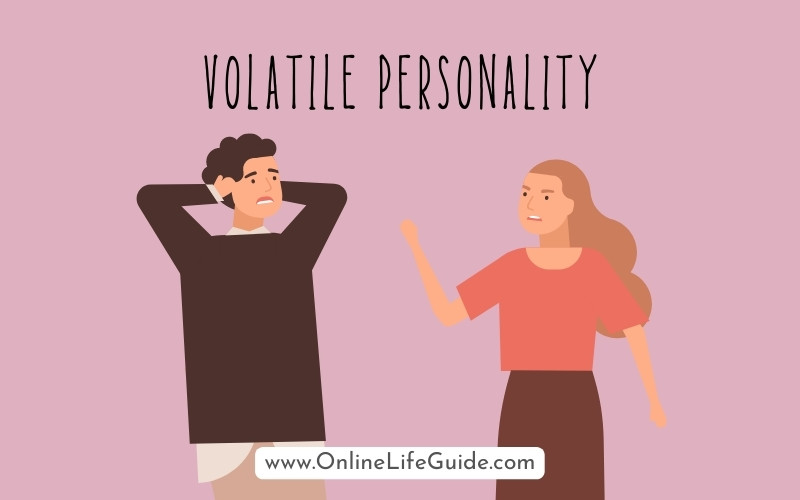
Do you feel like walking on eggshells in your relationship because of the unpredictable moods and reactions of your partner?
On one instance they might react positively to something and another time extremely negatively to the same exact thing.
This leaves the person dealing with them confused, hurt, and disappointed.
Constantly trying to guess their unpredictable nature can be extremely exhausting in the long run since you can’t ever feel comfortable and relaxed around this person.
You feel like you have to have your guard up and always be prepared for how they might react to something.
As for their moods, one day they’ll be extremely likable and happy-go-lucky. Someone you want to be around.
The next day they’ll do a complete 180 and become this unapproachable, cunning, and negative person that you would wish to avoid interacting with.
Why Toxic Relationships are Addictive and Hard to Leave?
Sadly, having a volatile personality is also one of the key traits of a toxic person that makes it difficult for their partner to make the decision of whether to stay or leave.
It can be extremely confusing to have two conflicting personas of the one you love. On one hand, you have this angel-like image of them in your heart, when everything was lovely and it felt like heaven on earth.
But then you see a completely contrasting version of them which makes it difficult to even be around them.
The unpredictability factor is also why toxic relationships can feel so addicting.
Predictable things can seem boring to our minds after a certain time, whereas the things that keep oscillating between pleasure and pain seem more interesting as the brain doesn’t know when it will get the next dopamine hit (dopamine is a feel-good hormone associated with our brain’s reward system).
This unpredictability can be addicting making the person go back to it time and time again even after experiencing pain. Take gambling as an example.
Talking about the volatile personality, I would like to bring one more thing to your attention.
Some of the things we just discussed might sound like symptoms of bipolar disorder where the person is abnormally happy in one instance and extremely irritable or depressed in another.
I’m not a psychiatrist but as a life coach that has a background in psychology, I’ve found bipolar disorder to be one of the causes of toxicity in several troubled relationships I’ve observed.
Do some research on bipolar disorder and if you feel like you or your partner might be going through it, it’s always a good idea to seek professional help.
Getting properly diagnosed by a Psychiatrist and going through necessary treatment often brings significant improvements in the life and relationships of the bipolar individual.
(Related: Powerful Affirmations for Toxic Relationships)
2. Anger Issues
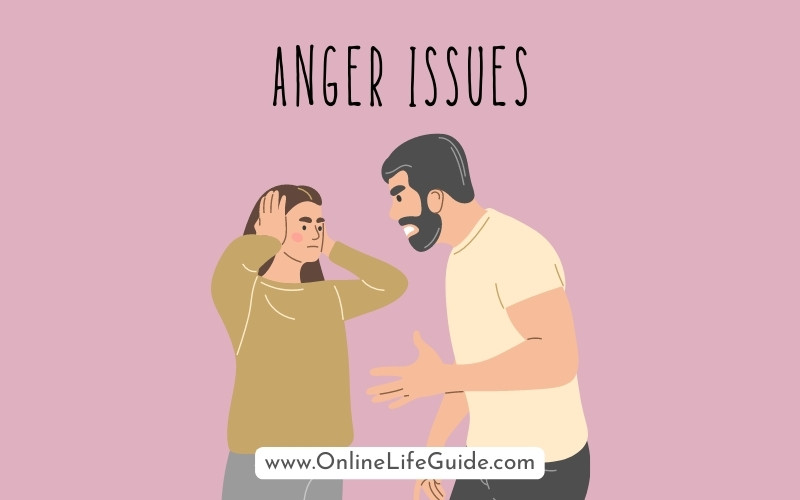
While getting angry might not be a toxic trait in itself since it’s an emotion we all go through, having emotional outbursts and flying into a rage every couple of days can become a problem.
Getting easily offended and losing their temper on trivial things might be a red flag for severe anger issues.
3. Sarcasm and Demeaning Humor

One of the most underlooked traits of a toxic person/partner is that they joke around at the expense of others.
Not only do they make someone the butt of their joke, they also attack them personally in the name of humor.
Their condescending humor might seem funny at first but over time it can be detrimental to the other person’s self-esteem.
When it comes to sarcasm, it can be difficult to have a normal conversation with someone whose default way of expressing themselves is through sarcasm.
I bet we all have met (or are dealing with) someone whose tongue is as sharp as a chef’s knife and whose first language is not English, Spanish, or Arabic, it’s Sarcasm.
Darts flow out of their mouth whenever they open them (not while yawning though but still).
Sarcasm and toxicity go hand-in-hand.
I have written a separate article on the most common things toxic partners say. There I’ve covered the toxic language patterns most frequently found in toxic partners.
The Most Underrated Relationship Advice
If I have to give one single piece of advice to someone having relationship issues, it would be to have some control over your tongue and learn to speak more mindfully.
Only speak when you have something good to say, and try your best to shut it when you want to say something negative, sarcastic, passive-aggressive, or complain about something.
How simple!
If we can manage to do this one single thing successfully, I can guarantee a lot of our relationship problems would resolve on their own.
The effort has to be two-sided of course but there’s no issue in initiating a one-sided effort and gradually influencing and inspiring the other partner to improve as well.
4. Controlling Behaviour
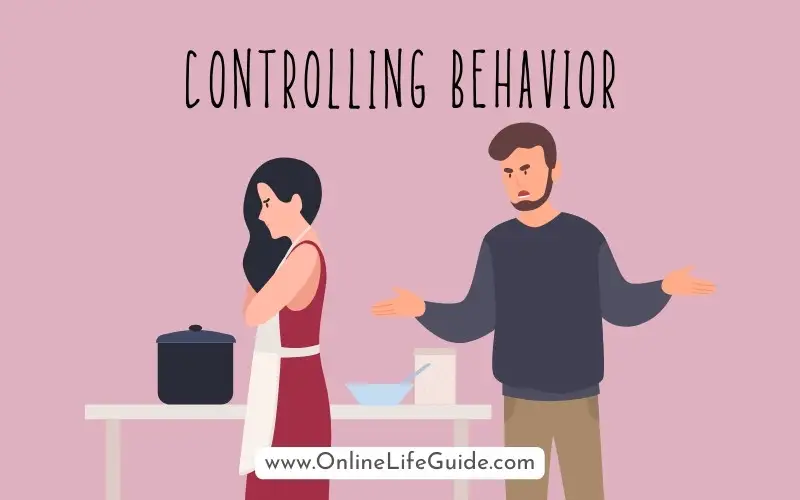
Do you feel like your partner is too involved in everything you do and tries to set the direction for everything according to their liking?
Do you feel criticized for your every move and personal choice all the time?
It’s common and natural for one partner to be the leading figure in the relationship and make decisions for the family. In fact, it’s often required to build a stable family.
However, when someone tries to dictate every move of their partner and has no regard for their personal space and liking, this quickly becomes suffocating.
5. Passive Aggression
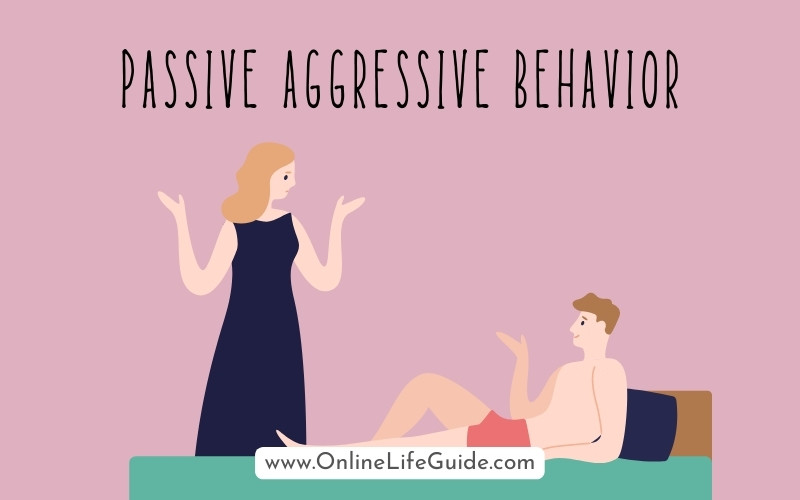
While some toxic partners clearly have anger issues, others use subtle passive-aggressive remarks to let their inner anger out.
They might not seem temperamental or have unstable emotions. In fact, they’ll seem calm on the outside and make you look bad for losing your composure, but their indirect jabs will make your head (and heart) hurt.
The challenge with passive aggression is that it’s hard to point it out or respond appropriately at the moment because it comes out of nowhere.
You’ll be having a completely normal conversation and then bam! they slip in one passive-aggressive sentence in the middle and then continue to converse as if nothing happened.
Now if you confront them, they’ll deny it (gaslighting) since they never lost composure, and then you’ll look bad for making things up out of thin air.
A Tip to Deal with Passive Aggressive Behavior of Your Partner
A lot of people use passive-aggressive language patterns because they are afraid of confrontation and things escalating beyond their control. So they let out their anger, frustration, and annoyance through subtle phrases.
An appropriate way to deal with a partner having the habit of using passive-aggressive remarks is to communicate with them in a composed manner that you find that particular statement uncomfortable and that such phrases are not healthy for the relationship.
Make sure to not drag the conversation too much to the point of personal attacks or pointing fingers at them. You do not want to start a fight or an argument.
The purpose is to only get your message across appropriately, so just focus on the one thing they said and communicate how it made you feel. That’s all. Then quickly move on with the rest of your conversation.
Do this every time they resort to using passive-aggressive language patterns and hopefully it will eventually break their pattern (over time of course).
5. Always Blaming and Not Taking Personal Responsibility
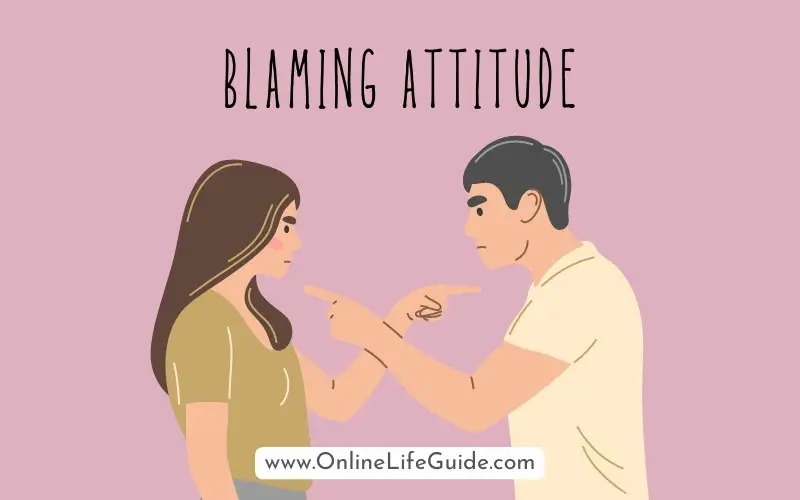
Whenever anything goes bad, is it always “your fault”, “your family’s fault” or anyone else’s fault?
Even their current emotional state is the fault of someone else.
These are the phrases you’ll hear them use commonly:
- “YOU made me angry”
- “YOU made me do this”
- “If you didn’t say that I wouldn’t have gotten angry”
- “We are in this situation because of what you did”
- “We wouldn’t be fighting if you just did as I said”
- “We are in this problem because of your family”
- “Why are you like this?”
Not taking responsibility is worse than making mistakes, getting into a fight, and dealing with self-imposed problems.
No matter how big the blunder or the problem is, as long as a person understands their share of mistakes and takes measures to rectify them, things can get better.
Self-improvement becomes very difficult for someone who has a pattern of escaping responsibility and putting blame on others for their own misery.
But it’s not a hopeless cause. Sometimes, such people eventually come to realize that they have been the problem but it usually takes things to escalate quite a bit and reach a mental threshold for them before it breaks them out of their patterns.
7. Constant Need for Attention and Reassurance
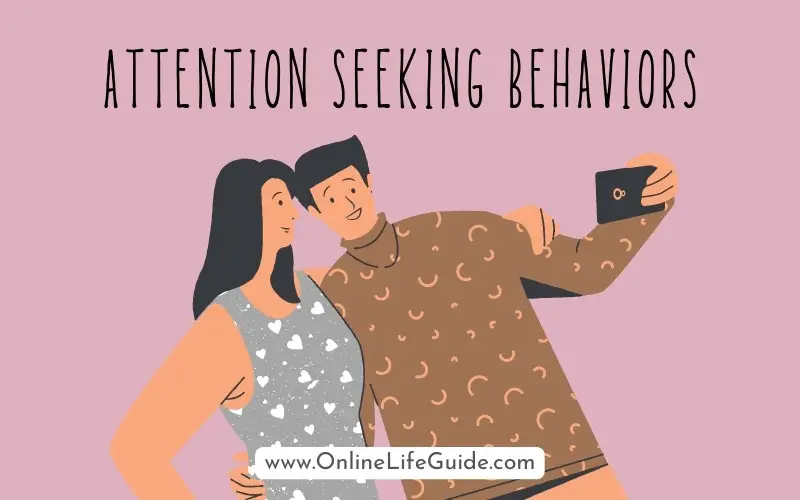
Toxic partners are attention seekers. They want you to give them priority over everything ALL THE TIME.
Your spouse should be among your top priorities, no doubt. The problem comes when they expect your time and attention at all times to the point of being clingy.
They feel insecure when you spend time with your friends, family, work, or other activities and hobbies that don’t include them.
They also want you to agree and give them reassurance on everything.
They won’t show any genuine interest in your life, thoughts, aspirations, and dreams, but when they want to talk about theirs, they want you to root for them and motivate them.
8. Don’t Take Disagreements Very Well

A toxic person thinks they are always right and that everyone must agree to their opinions, choices, and perspectives.
If someone challenges their worldview, they become reactive and try to downplay the other person in an effort of proving that he/she is the smarter one and that the other person is dumb and knows nothing about the topic of discussion.
They feel offended and disrespected when people don’t do things the way they suggested, which is again a part of their controlling nature.
They simply can’t take No for an answer and will throw tantrums when things don’t go according to their will.
They’ll keep trying to push you to do something that you already refused multiple times.
They won’t respect your boundaries and choices, and persistently try to convince you, which will eventually become a source of friction, frustration, and toxicity in the relationship between you two.
9. Judgemental and Have Strong Opinions
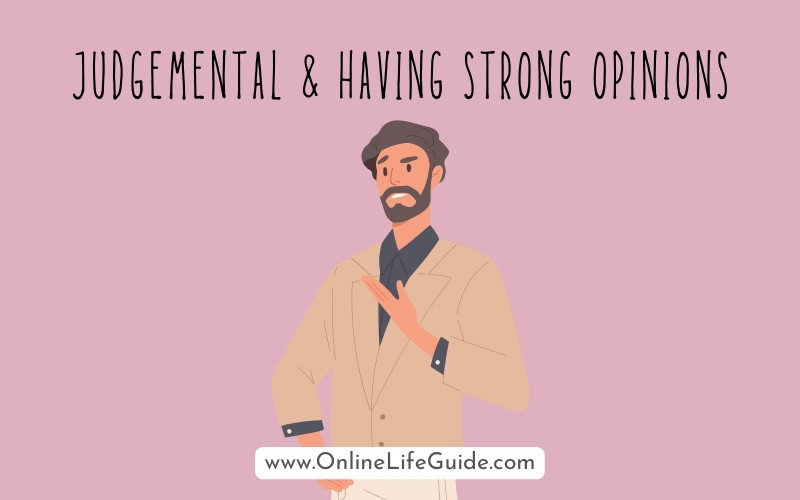
They are always criticizing people and society, and always finding faults in everything.
Instead of focusing on the good that is happening in the world, they choose to focus on all the wrongs that shouldn’t be happening.
It’s often very draining to be in their presence because of their negative worldview and constant complaining about people, politics, society, and life in general.
10. Master Manipulators
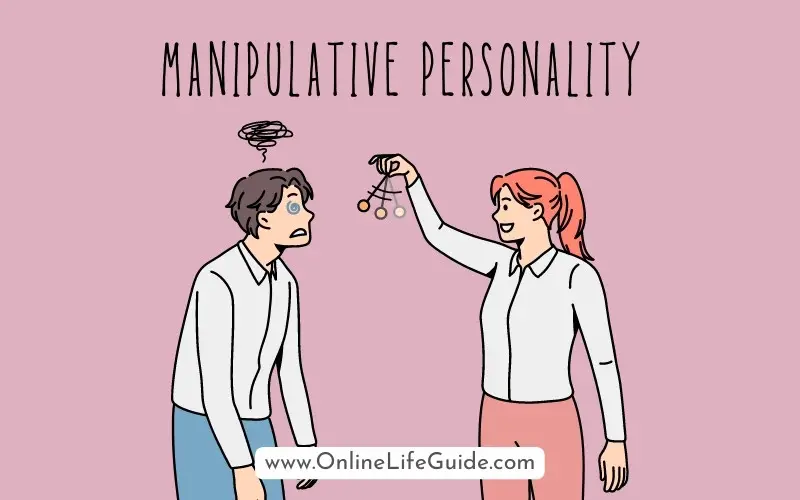
All they have on their minds is how to get what they want. They’ll constantly try to manipulate anyone and everyone around them to get their desired outcome.
This behavioral pattern often makes them unauthentic and disingenuous.
They pretend to be something that they aren’t just so they can build rapport with people. Once they’ve built some rapport they’ll immediately try to use people to their advantage.
Sometimes they’ll do favors to gain the trust of someone and make them feel indebted.
They’ll do it to put the person under the moral obligation of returning the favor because if the other person accepts the favor, they’ll have some level of control over him/her and then take whatever work they want from that person.
11. Narcissistic Personality
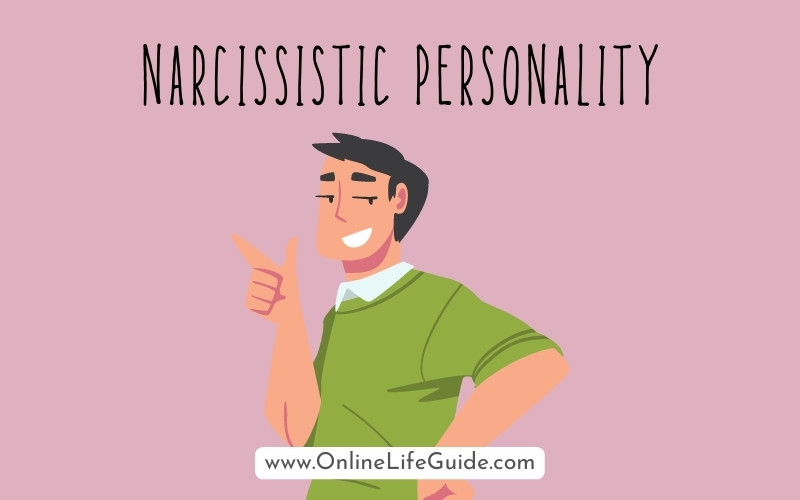
At this point, it’s already a no-brainer that a person who always wants things to go their way, who constantly manipulates people to get his/her own desired outcomes, and who can’t take no for an answer, certainly has narcissistic tendencies.
Sometimes they’ll disguise narcissism with noble intentions and generosity. They’ll even justify their narcissistic behaviors with moral policing and making you feel guilty for not putting up with them.
12. They Feel the Need to be Dominant in Every Situation

Since they believe they are smarter and better than other dimwitted people, they feel entitled to be on top in every situation.
Everyone else is supposed to listen to them and follow their lead. Things escalate very quickly if they feel like their position is threatened or challenged by someone who comes off as equally smart.
Fixing a Toxic Relationship
You can find my In-depth Guide on how to fix a toxic relationship where we look into 18 strategies and ways to start fixing a toxic relationship and give your relationship a fair shot.
If you’re struggling with a toxic relationship, I highly suggest you go through that guide and look into some of the other guides I’ve written around this topic. You can find all of them in the “Relationship” section of the blog.
If after giving your best shot at fixing your relationship things don’t seem to get any better, it might be best to make a decision for your own well-being and the well-being of your children (if any).
We can try to influence our situations and the people around us to the best of our abilities, but we can’t control them. Everyone makes their own choices in life and has to live with the consequences, good or bad. Maybe it’s time you make yours.
I hope this article served you in some way, shape, or form. See you in the other guides!

